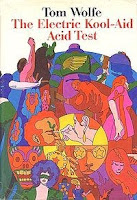In many ways the UK general election has not gone the way anyone wanted.
Sure, we have a hung Parliament, 149 MPs from the last scandal-ridden pit did not stand, Jacqui Smith lost her seat, and the BNP didn't get any at all.
Sure, we have a hung Parliament, 149 MPs from the last scandal-ridden pit did not stand, Jacqui Smith lost her seat, and the BNP didn't get any at all.
Yet the politicians and their party machines have not been able to control the result. And, while voter turn-out increased slightly, voters were angry at being turned away as polls closed and already a campaign has begun to "take back Parliament" by reforming an electoral system that nullifies vast numbers of votes.
So one thing seems assured: this Parliament is in for a bumpy ride.
And this is a great outcome. We have MPs exactly where we want them. They are not in control. They have little alternative but to listen and respond to our issues bottom-up.
Independent forums like Power 2010, 38 Degrees, and TheyWorkForYou, are genuine attempts to gather and share everyone's views without regard for 'party lines'. The politicians would do well to engage with them instead of relying on their own party 'research' to validate policies they want to impose from the top down.
But we too need to participate by sharing our concerns: we'll only get the government we deserve.
Independent forums like Power 2010, 38 Degrees, and TheyWorkForYou, are genuine attempts to gather and share everyone's views without regard for 'party lines'. The politicians would do well to engage with them instead of relying on their own party 'research' to validate policies they want to impose from the top down.
But we too need to participate by sharing our concerns: we'll only get the government we deserve.
Image from The Original Hog Roast Company






